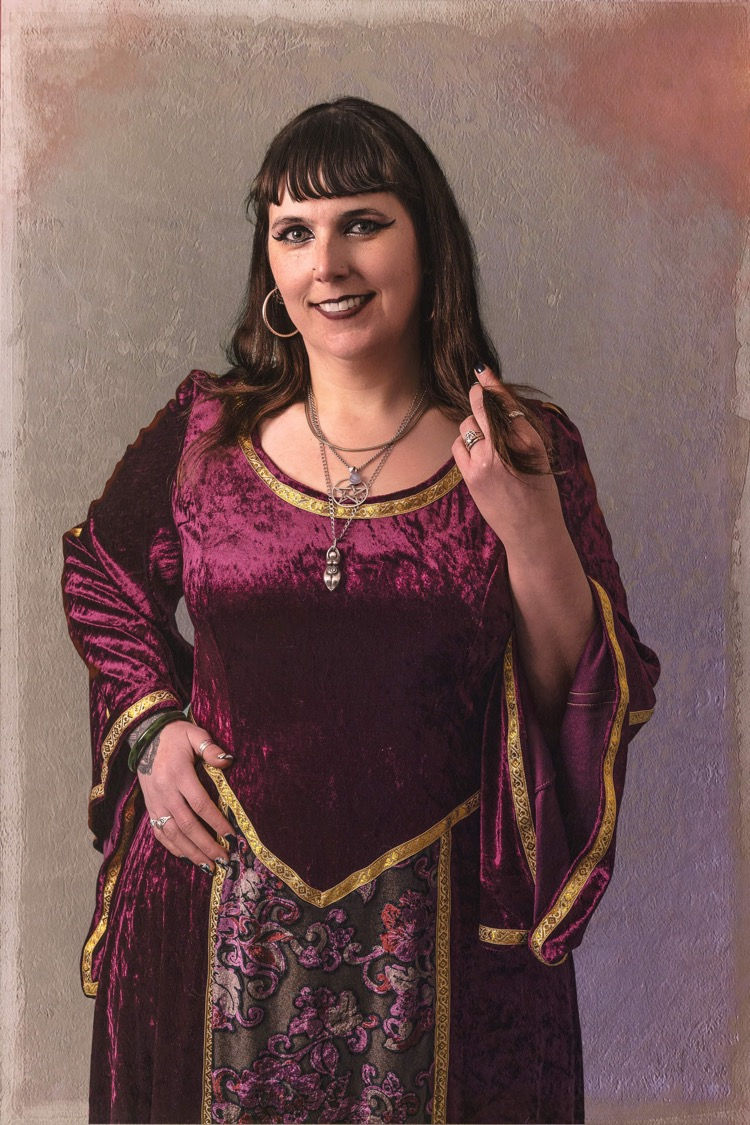Deity Of The Month - Rhiannon
- pagansofthenorth
- Feb 15, 2024
- 3 min read
Goddess of horses, spirituality, fertility, femininity, and rebirth, Rhiannon is a mythical figure hailing from Wales who has been celebrated since at least the 11th century when she first appeared in the traditional Welsh works, The Four Branches of the Mabinogi, a piece of literature that is widely regarded as the earliest prose in Britain. The Four Branches are four separate stories that interweave and were taken from oral records, and Rhiannon appears in the First Branch riding a white horse.
The Story
Rhiannon first appears to a prince named Pwyll, who rules over the historical area of Dyfed - which now incorporates Carmarthenshire, Cardiganshire and Pembrokeshire. Pwyll climbed the hill known as Gorsedd Arberth with his horsemen in order to use its magic. The hill is known to offer either a marvel or to battle those who ascend it, and Pwyll is lucky enough that he gets the marvel - Rhiannon on a white horse. She flees on horseback, albeit at a steady pace, and he sends his men to chase after her. Despite her not going full pelt, his men are unable to catch up to her. After three days, Pwyll asks Rhiannon to stop, and she does so.
She reveals to him that she has chosen him to marry despite already being engaged to another. Pwyll agrees, but at their wedding feast another man asks Pwyll to give him Rhiannon and he agrees (without knowing what is being asked of him), which naturally upsets her. With some cunning magic, she has Pwyll use an enchanted bag at her wedding feast to her third betrothed, and ask the new fiancé to fill it with food. But it can’t be filled, and she and Pwyll trap the man inside it and finally get married.

Rhiannon and Pwyll have a son, Pryderi, but his birth and childhood are far from plain sailing. After Rhiannon gives birth, Pryderi is kidnapped in the night while she is sleeping, and to avoid being blamed, her maids who were supposed to be watching him smear dog blood on her face to frame her for his disappearance. She is accused of murdering and eating her infant child, and agrees to the punishment of having to sit outside and tell travellers her story, and offering to carry them, acting as a horse. Pwyll does not believe she is to blame and stands by her. It turns out their child was found and raised by a lord and as he grows, his guardian realises his resemblance to Pwyll and he returns home to his rightful parents, who learn that he has grown up rapidly and with an affinity for horses like his mother. When Pwyll dies, Pryderi becomes King of Dyfed.
In the Third Branch, Pryderi sets his mother up with his friend Manawydan, and Rhiannon marries him. The three of them along with Pryderi’s wife Cigna return to the hill Gorsedd Arberth but this time they don’t get a miracle, and a magical storm arrives and all living creatures disappear barring the four friends. They journey to England and after a hunting trip takes Pryderi into a curious tower, he and Rhiannon become trapped inside and disappear. The story then focuses on Manawydan and his rescue of the two.
The Goddess
Rhiannon is acknowledged as being from the Otherworld, the land of magic and fairies and mythical beings, and is therefore not human in the stories about her. She is known for her magical horse riding, her magic bag, and the Adar Rhiannon (the ‘birds of Rhiannon’), three birds connected to her whose song can ‘wake the dead and lull the living to sleep’ which appear in the 14th century Arthurian text Culhwch and Olwen.
Rhiannon can be considered a feminist goddess, a writer of her own fortune, and is a strong female figure. It is easy to see why people may look up to her as a leader and someone to worship or work with; she embodies female empowerment and gender equality by making her own decisions and not standing by when she was wronged.
By Sam Stoker




Comments